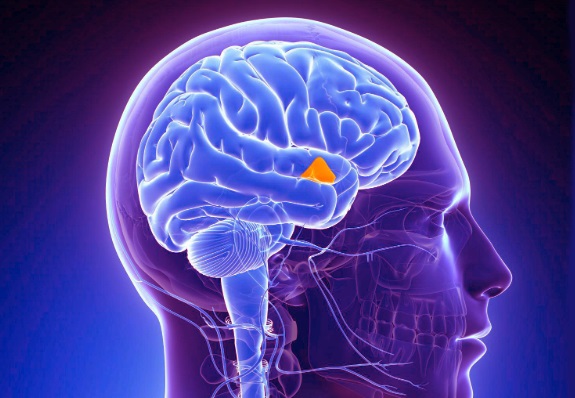Nikhil Prasad Fact checked by:Thailand Medical News Team Feb 11, 2025 2 months, 1 day, 21 hours, 43 minutes ago
Medical News: Hypothalamic hamartomas (HHs) are rare, non-cancerous brain malformations that affect both children and adults. These growths occur in the hypothalamus, a vital region of the brain responsible for hormone regulation, emotions, and body functions. Patients with HHs often experience seizures, behavioral issues, cognitive impairments, and hormonal imbalances. Though the condition is rare, its impact on quality of life can be severe.
 Breakthrough Insights into Managing Hypothalamic Hamartomas
Breakthrough Insights into Managing Hypothalamic Hamartomas
The exact cause of HHs remains under investigation, but some studies suggest that genetic mutations may play a role. These growths are typically detected in childhood, often due to symptoms such as early-onset puberty, frequent laughter-like seizures (gelastic seizures), and cognitive delays. Because HHs do not behave like typical tumors, they can be challenging to diagnose without advanced imaging techniques.
Advances in Diagnosis and Treatment
Medical experts from Carol Davila University of Medicine and Pharmacy in Bucharest, Romania, have been investigating new approaches to managing HHs. This
Medical News report highlights their latest findings, which emphasize the importance of early diagnosis, improved imaging techniques, and personalized treatment strategies.
One of the key advancements in HH management is the development of high-resolution imaging tools. These allow doctors to better detect and classify the size and location of the hamartoma, leading to more accurate treatment plans. Additionally, researchers have explored a combination of surgical and non-surgical methods to improve patient outcomes.
Surgical and Non-Surgical Approaches
Surgery remains one of the most effective treatments for HHs, particularly for patients with drug-resistant epilepsy. Techniques such as laser interstitial thermal therapy (LITT), stereotactic radiosurgery, and minimally invasive endoscopic procedures have shown promising results. These methods reduce seizure frequency and improve cognitive function while minimizing surgical risks.
For patients who may not be suitable candidates for surgery, alternative approaches like deep brain stimulation (DBS) and vagus nerve stimulation (VNS) have been explored. These techniques use electrical impulses to regulate brain activity and have been found to reduce seizure frequency in some cases.
Pharmacological treatments, though less effective for seizure control, remain important for managing associated symptoms such as mood disorders and hormonal imbalances.
Current Treatments and Medications
Pharmacological therapy plays an essential role in managing symptoms of HH, particularly when surgery is not a viable option. While antiseizure medications are often prescribed, they are generally not very effective in controlling gelastic seizures, which are highly resistant to standard drugs. However, medications such as carbamazepine, oxcarbazepine, and lamotrigine may be used to manage associated focal seizures.
&nb
sp;
In cases where HHs cause early-onset puberty, hormonal treatments such as gonadotropin-releasing hormone (GnRH) analogs are prescribed to delay premature sexual development. Other hormonal therapies may be necessary for patients experiencing endocrine dysfunction, including thyroid hormone replacement therapy or growth hormone supplementation.
Recent studies have also explored the use of mTOR inhibitors, such as everolimus, to target the molecular pathways involved in HHs. While still under investigation, these drugs show potential in reducing the growth and activity of HH lesions.
Long-Term Outcomes and Quality of Life
The study highlights that patients undergoing early intervention and personalized treatment strategies have better long-term outcomes. Improvements in cognitive abilities, behavioral stability, and seizure control significantly enhance the quality of life for individuals with HHs. However, challenges remain, particularly for those with persistent endocrine dysfunction and psychiatric complications.
Regular follow-up care and interdisciplinary collaboration between neurologists, endocrinologists, and psychologists are crucial in ensuring that patients receive comprehensive care. The study also calls for further research into the genetic factors contributing to HHs and the development of targeted therapies.
Conclusion
Hypothalamic hamartomas present a complex medical challenge, but advances in diagnostic tools and treatment methods offer hope for improved patient outcomes. Personalized and timely intervention is key to managing this condition effectively. Ongoing research and collaborative efforts among medical professionals will continue to shape the future of HH treatment, ensuring that patients receive the best possible care.
The study findings were published in the peer-reviewed journal: Biomedicines.
https://www.mdpi.com/2227-9059/13/2/371
For the latest on Hypothalamic Hamartomas, keep on logging to
Thailand Medical News.
Read Also:
https://www.thailandmedical.news/news/breaking-french-covid-19-research-reveals-that-the-hypothalamus-region-of-the-brain-is-also-a-target-for-the-sars-cov-2-coronavirus
https://www.thailandmedical.news/news/dysfunctions-in-the-vagus-nerve-hypothalamic-pituitary-adrenal-axis-and-mitochondria-underlie-the-complexities-of-long-covid
https://www.thailandmedical.news/news/breaking-news-italian-study-reveals-that-sars-cov-2-is-able-to-affect-the-pituitary-gland-leading-to-possible-hypopituitarism-and-a-variety-of-disorde
